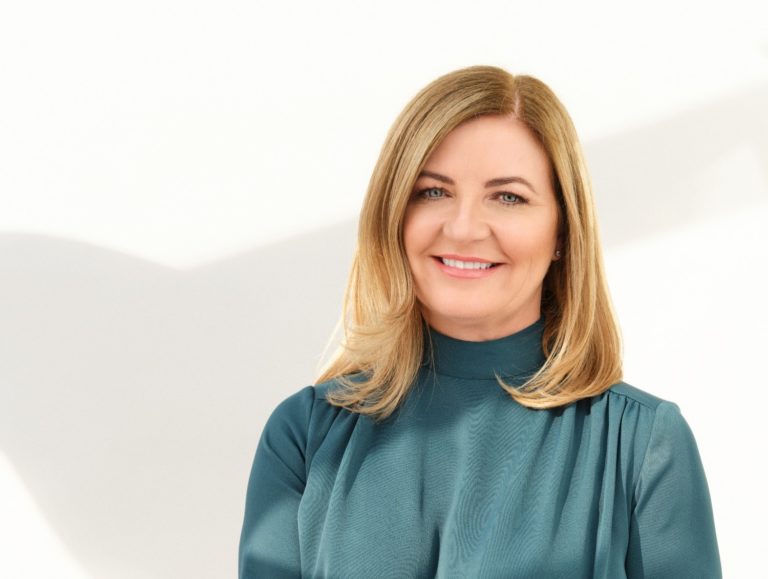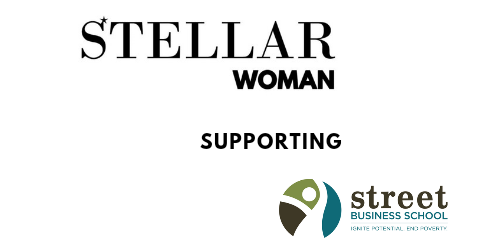Worrying about your financial future in the current climate is understandable. Fortunately, there are some key things you can do now to ease any pressure and build a financially resilient future. Monica Bradley, Managing Director of award-winning mortgage broker MB Associates, shares her wisdom.
Think you’re not financially clued up? You’re not alone. A report mentioned in the Financial Times in March 2023 showed that only 34% of women felt confident about their current financial situation – a 15% reduction compared to the previous year.
Only 51% of women felt financially independent compared with 58% of men, according to a survey of 2000 adults by Opinium for Fidelity. The report said that rising living costs and income reductions had resulted in falling confidence where money was concerned.

As a mortgage specialist, I always talk to clients about how they can plan to be in a stronger financial position in years to come. I encourage clients to think ahead when buying a property, whether it’s their first home or a new one. I ask them to consider where they’d like to be in five or ten years and when they plan to sell up and/or retire. These are essential questions regardless of your age and current income – if you don’t think ahead, you can’t plan for the future.
Taking charge of your finances
If you’re not confident about your current situation, there are several key things you can do to take charge of your finances. Start now, and you’ll be putting yourself in a more secure position.
Here’s four key ways to improve your financial future…
• Try to clear your debts
• Get on top of your spending
• Make overpayments on your mortgage if you can, or get a mortgage health check
• Develop a long-term financial plan
How to tackle debt
If you have debts, it’s crucial to know where you stand. Don’t be afraid to look at your debts carefully. List everything you owe, including credit card balances, car payments and personal loans. Calculate what you can afford to pay off each month. If you have a credit card, always try to pay more than the minimum payment each month to pay less interest in the long term.
If you have a good credit history and you have a loan, try to negotiate a better interest rate. This won’t affect your credit score; you’ve got nothing to lose by asking your lender.
If you have balances across multiple credit cards, then a debt consolidation loan (combining all your balances into one loan) may be a good idea, as this could help you save on interest.
Know what you’re spending.
Have a clear idea of how much you spend every month. Most of us know precisely what our net income is each month – even those who are self-employed or freelance and have varying incomes have a pretty good idea of how much they are likely to earn every month. We tend to be less clear on how much we’re spending. Let’s face it – some of us don’t want to know! But you can’t bury your head in the sand if you are serious about getting on top of your finances.

Santander recommends following the 50/30/20 rule, which means 50% of your income goes on basic expenses, 30% on non-essential expenses, and 20% on savings. While this may not be possible for everybody right now, it’s a good rule of thumb to aim for and having a plan to put some money away is naturally a good idea.
When paying off debt, consider a couple of key methods.
Debt Snowball – grouping debts and paying them off individually, from the smallest to the largest. This makes it easier to clear debt as you are less likely to feel intimidated by more significant debts.
Debt Avalanche – you start by paying off the most significant minimum payment, ordering your debt from the largest to the smallest. This means you’ll settle your debts faster, but the debt snowball method can be less mentally daunting for some.

Build an emergency fund
Once you’ve got on top of your debt, try to build up an emergency fund. Cut back on non-essential items.
According to a report from Legal & General, nine in ten people are concerned about rising living costs. Some 81% of those surveyed said they are cutting back on luxury items. Having a reserve fund in the event of the unexpected is crucial. The Legal & General survey revealed that 60% of households have less than £5000 in savings. Some 16% had no savings at all. Yet the report also showed that households overestimate the support they would receive from savings, their employer and the state if they became ill and couldn’t work.
While having a contingency fund is important, it’s also a good idea to think about other ways to keep your family and home secure. Financial protection can offer you peace of mind by covering your bills if you can’t work due to illness or injury.

There are various types of cover…
Income protection – which pays out a regular monthly sum to cover your bills if you can’t work due to illness or injury
Critical illness cover – which pays out a one-off lump sum if you are diagnosed with a serious illness such as cancer, Parkinson’s, heart attack or multiple sclerosis
Life cover – which pays out a lump sum in the event of your death to help your loved ones manage their finances
Financial protection offers peace of mind knowing your bills would be covered if you were ill and unable to work, and it doesn’t have to be expensive.
Make overpayments on your mortgage
Even a small monthly amount of £50 will make a difference in the long run. You’ll pay less interest, and you’ll clear your mortgage debt sooner. Regular overpayments can be ideal if you have a bit of spare cash, and most lenders will allow you to overpay by ten percent each year. However, if you receive a lump sum payment, such as an inheritance, you can usually make a one-off overpayment.
To set up an overpayment, you can either contact your lender to make a one-off lump sum payment, or you can ask for their bank details and set up a regular standing order for an overpayment amount that’s affordable.
It’s no secret that mortgage interest rates have risen in the last 18 months, so it’s also worth checking if you’re getting the most competitive deal. Speak to a mortgage broker. At MB Associates, we offer a free mortgage health check to ensure you’re paying the least amount of interest possible.
Planning ahead
Seek advice from an experienced financial adviser based on where you are now and where you’d like to be. Think about how long you plan to live in your current property if you’re a homeowner and what you would like to happen in future. Will you be downsizing to a smaller property or a cheaper area? Or do you plan to upsize and take on a larger mortgage? If you’re a renter who plans to buy their own home one day, what will you need to save for a deposit? Seek advice from a mortgage specialist.
Make sure you have access to your pension(s) and their current value. Ensure you track down any pensions from previous jobs – if you’re not sure how to find them, the government’s website has a pension tracing service. Visit https://www.gov.uk/find-pension-contact-details
Finally, think about when you plan to retire and how much you would need to live on and make sure you get bespoke advice tailored to suit your situation. The right advice can be invaluable when it comes to putting your mind at rest and planning for a secure future.
More information:
For mortgage advice and help with financial planning, visit mbassociates.net or call 020 8652 5240. Or you can email Monica at monica@mbassociates.net
